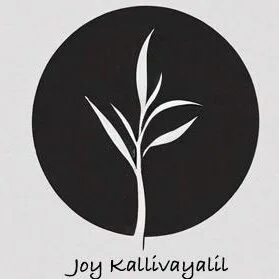#memory
#films
Nazia Hasan.
13 August is the death anniversary of the famous singer Nazia Hassan.( 1965- 2000).
Nazia was the face of pop music in India and Pakistan during the 1980s with numbers like “Disco Deewane,” “Boom Boom,” and “Aap Jaisa Koi.”
She established herself as the “Queen of South Asian Pop” and was one of the most successful singers from the subcontinent. The duo Nazia and Zoheb sold over 65 million records worldwide.
Nazia Hassan was born in Karachi, Pakistan.
She spent her growing-up years in London, where she was noticed by filmmaker-actor Feroz Khan at a party. Khan arranged her audition with the British-Indian musician Biddu, who was the music director of the Hindi film Qurbani. Impressed by the freshness of her voice, Khan gave her the chance to sing “Aap Jaisa Koi.” The song went on to become a chartbuster and earned her the Filmfare Award for the Best Female Playback at the age of 15, making her the youngest and the first Pakistani to win the award.
The success of “Aap Jaisa Koi” was followed by her debut album, “Disco Deewane,” in collaboration with Biddu and her brother Zoheb, released in 1981. Nazia became an international sensation, charting in fourteen countries and becoming the best-selling Asian pop record at the time. It was the beginning of the pair, Nazia and Zoheb,” jointly called “The Hassans.”
Following the phenomenal success of Disco Deewane, “Nazia and Zoheb” became the first South Asian singers to be signed by an international music company, the EMI Group. The album “Star (Boom Boom) was again a big hit, resulting in her second nomination for the Filmfare Award for Best Female Playback Singer for “Boom Boom.”
Her third album, “Young Tarang,” was released in 1984; the album sold over 40 million copies and has songs like Ankhien Milane Wale, “Zara Chehra,” and “Dum Dum Dee Dee.”
In Hindi films, she sang for films like “Dilwaala” (1986), “Ilzaam” (1986), “Main Balwaan” (1986), “Adhikar” (1986), “Sheela” (1987) and “Saaya” (1989).
Throughout her career, Nazia Hassan, alongside her brother Zoheb, featured in songs that became anthems for a generation and are still celebrated today. Her third album, “Hotline” (1987), consists of songs like Aa Haan, “Hum aur Tum,” “Paisa Paisa,” and “Telephone Pyar.”.
In 1989, Nazia and Zohaib hosted the shows “MMusic ’89” and “Dhanak.” Her final album, “Camera Camera” (1992), was part of a campaign against drugs, showcasing her commitment to social causes.
She retired from singing to focus on her personal life, studies, and philanthropic work.
Nazia earned her bachelor’s degree in business administration and economics from the Richmond American University in London. She interned in the Women’s International Leadership program at the United Nations in 1991, later joining the United Nations Security Council. She also earned a Law (LLB) degree from the University of London.
Nazia married Karachi-based businessman Mirza Ishtiaq Baig on March 30, 1995. She gave birth to a boy, Arez Hassan, on 7 April 1997. Hassan’s marriage was tumultuous, leading to her divorce from Baig three months before her death.
Nazia Hassan died in London on 13 August 2000 at the age of 35, a
due to complications of her lung cancer. She was buried at Hendon Cemetery, London.
Nazia was involved with many charities and philanthropic causes. She, with her brother Zohaib, and British social entrepreneur Sophia Swire, established the organisation BAN (Battle Against Narcotics).
In 2003, Hassan’s parents established the “Nazia Hassan Foundation” to continue her mission of creating a better world for all.
(courtesy – Tasweer Mahal – All About Cinema)
Posted inUncategorized
